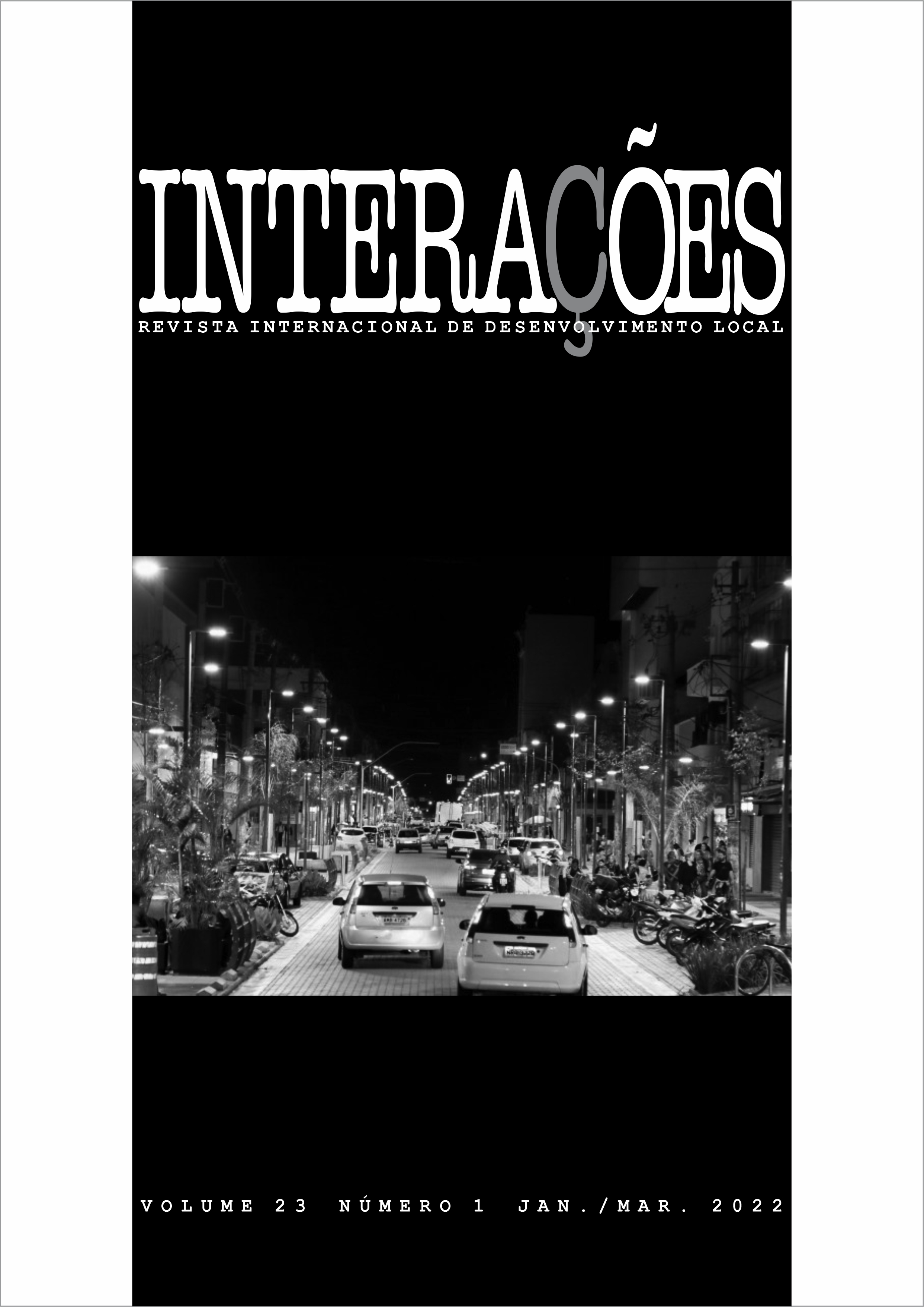Returns to education in Brazil: focus on the South and Northeast regions for year 2017
Keywords:
human capital, income, return of schoolingAbstract
This paper aims to analyze the effects of education on the income of individuals residing in Brazil and, specifically, in the South and Northeast regions. Estimates are made from the PNAD database for the year 2017 using the income equation proposed by Mincer (1974) and Heckman's (1979) procedure to correct the selection bias. The method of Trostel (2004) is also used to calculate the returns to schooling both in Brazil and in the South and Northeast regions. As a main result, the theoretical model and its estimates indicate that in all the regions analyzed, human capital presents increasing returns, which are increasingly higher as the individual reaches higher degrees of education, pointing out that in Brazil people with 4 years of study have returns of 2.9% in their salaries; with 15 years of study the returns are 33.2%. In the South and Northeast, the values are respectively 1.8% and 2.7% for 4 years, and 26, 3% and 33.2% for 15 years of study, indicating higher returns for the Northeast region. Therefore, the results suggest that it is of fundamental importance to devise policies that encourage the completion of higher levels of education to increase workers' income.
References
AALI-BUJARI, A.; VENEGAS-MARTÍNEZ, F.; GARCÍA-SANTILLÁN, A. Schooling Levels and Wage Gains in Mexico. Economics & Sociology, Cidade, v. 12, n. 4, p. 74-331, 2019.
BECKER, G. Human capital. New York: The National Bureau of Economic Research, 1964.
BLAUG, M. The Methodology of Economics: or how economist explain. New York: Cambridge University Press, 1992.
DIAS, J.; MONTEIRO, W. D. F.; DIAS, M. H. A.; RUSSO, L. X. Função de capital humano dos estados brasileiros: retornos crescentes ou decrescentes da educação? Pesquisa e Planejamento Econômico – PPE, Brasília, v. 43, n. 2, p. 333-79, ago. 2013.
DEPKEN, C.; CHISENI, C.; ITA, E. Returns to Education in South Africa: evidence from the National Income Dynamics Study. Zagreb International Review of Economics & Business, Zagreb, v. 22, n. 1, p. 1-12, 2019.
FOCHEZATTO, A.; PELEGRINI, T.; HOECKEL, P. H. O.; TOMKOWSKI, F. G. Desenvolvimento socioeconômico regional: cidades, crescimento e especialização produtiva. Criciúma: EDIPUCRS, 2019.
HECKMAN, J. Sample selection bias as a specification error. Econometrica, New Haven, v. 47, n. 1, p. 153-61, 1979.
HECKMAN, J.; TOBIAS, J. L.; VYTLACILL, E. Simple estimators for treatment parameters in a latent variable framework with an application to estimating the returns to schooling. NBER Working Paper, 7950, 2000.
INSTITUTO BRASILEIRO DE GEOGRAFIA E ESTATÍSTICA [IBGE]. Pesquisa Nacional por Amostra de Domicílios Contínua – PNAD Contínua 2017. Brasília, DF, 2017. Disponível em: https://www.ibge.gov.br/estatisticas/multidominio/condicoes-de-vida-desigualdade-e-pobreza/17270-pnad-continua.html?=&t=downloads. Acesso em: 25 out. 2019.
KELNIAR, V. C.; LOPES, J. L.; PONTILI, R. M. A teoria do capital humano: revisitando conceitos. In: ENCONTRO DE PRODUÇÃO CIENTÍFICA E TECNOLÓGICA, 8., 21 a 25 de outubro de 2013, Campo Mourão. Anais [...]. Campo Mourão: Unespar, 2013.
MARSHALL, A. Principles of Economics. 8. ed. London: Mac Millan. 1890. [1920].
MINCER, J. Schooling, experience, and earnings. Human Behavior & Social Institutions. New York / London: National Bureau of Economic Research, 1974.
NAKABASHI, L.; ASSAHIDE, L. Estimando o retorno da escolaridade dos jovens por classe de renda: 1997-2012. Pesquisa e Planejamento Econômico – PPE, Brasília, v. 47, n. 3, p. 137-83, dez. 2017.
ORGANIZAÇÃO PARA A COOPERAÇÃO E DESENVOLVIMENTO ECONÔMICO (OCDE). The well-being of nations: the role of human and social capital. Education and Skills., Paris: OCDE, 2001.
PONCHIROLLI, O. O capital humano como elemento estratégico na economia da sociedade do conhecimento sob a perspectiva da teoria do agir comunicativo. Revista FAE, Curitiba, v. 5, n. 1, p. 29-42. 2002.
PSACHAROPOULOS, G.; PATRINOS, H. A. Returns to investment in education: a decennial review of the global literature. The World Ban, 2018.
RESENDE, M.; WYLLIE, R. Retornos para educação no Brasil: evidências empíricas adicionais. Economia Aplicada, Ribeirão Preto, v. 10, n. 3, p. 349-65, 2006.
SACHSIDA, A.; LOUREIRO, P. R. A.; MENDONÇA, M. J. C. D. Um estudo sobre retorno em escolaridade no Brasil. Revista Brasileira de Economia, Rio de Janeiro, v. 58, n. 2, p. 249-65, 2004.
SCHULTZ, T. W. Investment in human capital. American Economic Review, Pittsburgh, n. 51, p. 1-17, 1961.
SMITH, A. A riqueza das nações: investigação sobre sua natureza e suas causas. 3. ed. Tradução de Luiz João Baraúna. São Paulo: Nova Cultural, 1988. 250 p. V. I e II.
SULIANO, D. C.; SIQUEIRA, M. L. Retornos da educação no Brasil em âmbito regional considerando um ambiente de menor desigualdade. Economia Aplicada, Ribeirão Preto, v. 16, n. 1, p. 137-65, 2012.
TROSTEL, P. Returns to scale in producing human capital from schooling. Oxford University Press, Oxónia, v. 56, p. 461-84, 2004.
WANG, F.; WU, H. Returns to education in rural and urban China: an empirical study. Asian Journal of Social Science Studies, Singapore, v. 3, n. 4, p. 18-28, 2018.
Downloads
Published
How to Cite
Issue
Section
License
Direitos Autorais para artigos publicados nesta revista são do autor, com direitos de primeira publicação para a revista. Em virtude de aparecerem nesta revista de acesso público, os artigos são de uso gratuito, com atribuições próprias, em aplicações educacionais e não-comerciais.


